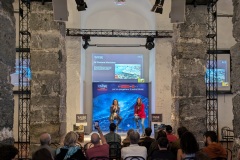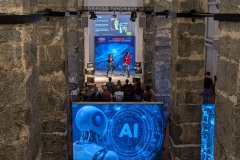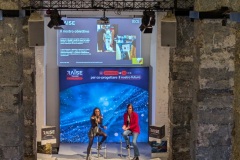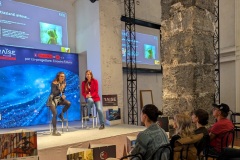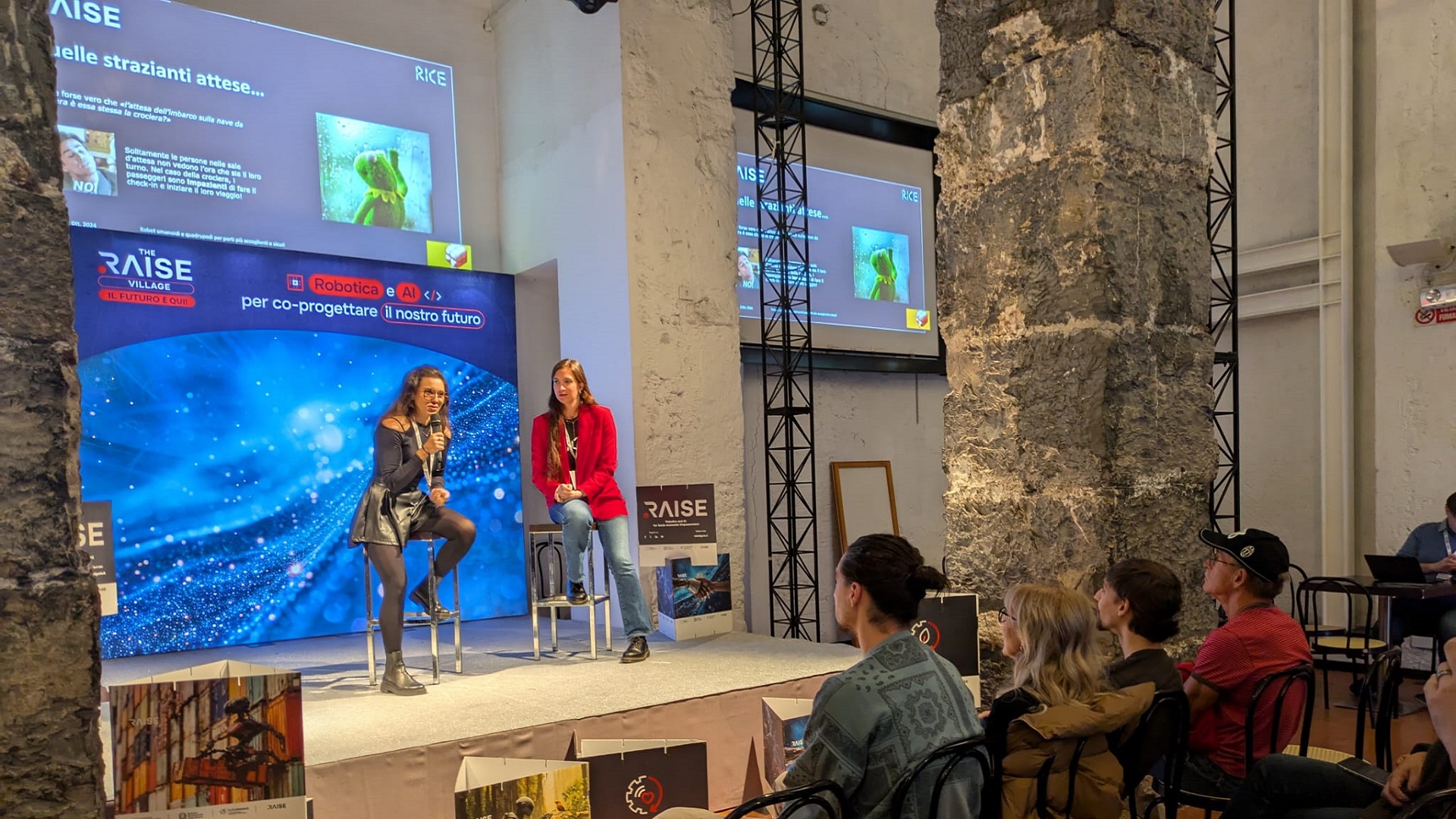
On november 2nd, on the stage of the talk area at the RAISE Village, Zoe Betta and Lucrezia Grassi from the RICE Laboratory of the University of Genoa presented a conference titled “Humanoid and Quadruped Robots for More Welcoming and Safe Ports”. The conference explored the potential of robots in interacting with people and ensuring safety in complex port environments.
During the event, two innovative projects were presented as part of Spoke 4 of the RAISE project, aimed at advancing robotics in social and security fields.
The first project involves the development of a cloud-based, diversity-sensitive conversational system designed for social robots like Pepper. This humanoid robot has been customized to welcome tourists at the Maritime Station of Genoa, providing information and collecting feedback on visitors’ experiences.
The second project focuses on port security through the quadruped robot Spot by Boston Dynamics. Spot has been programmed to carry out autonomous monitoring missions, including cargo hold inspections and monitoring of hazardous goods yards, enhancing safety for both workers and goods.
This initiative represents a significant step forward for technological innovation in the port sector, where advanced robots like Pepper and Spot contribute to making operations more efficient and secure.
“The real advantage of having my project within an ecosystem like RAISE, in my opinion, lies in the richness that arises from interaction and collaboration with entities that are very different from those I’m used to working with. Thanks to this experience, I have the opportunity to collaborate not only with other research organizations but also with more operational entities like the Port Authority, which deals with concrete and immediate applications. This cross-pollination allows me to envision new applications for the project, discovering how our solutions can be useful in contexts I might not have considered at the outset. Furthermore, the interaction with other research groups, often more experienced or with complementary expertise to mine, enriches the work in unexpected ways, offering a concrete and short-term feasibility perspective”, commented Zoe Betta at the end of the conference.
“The added value of participating in an ecosystem like RAISE with our project primarily lies in the ability to test our system, called CAIR (Cloud Artificial Intelligence and Robotics), already registered with the SIAE before RAISE started, in different contexts. Thanks to its advanced architecture, CAIR can automatically adapt to various populations and environments, allowing us to experiment with it in very different fields. This versatility is one of its greatest strengths, as it makes it suitable for both the healthcare sector within Spoke 2 and visitor reception in port areas within Spoke 4. Participating in RAISE has given us the opportunity to establish valuable collaborations with leading organizations, such as the Unipolar Spinal Unit at the Santa Corona Hospital in Pietra Ligure, the Italian Institute of Technology, the National Research Council, and Maritime Stations. Additionally, RAISE offers us greater visibility, allowing us to showcase our work at events like the Science Festival and Robot Valley, where we gain valuable feedback from the public,” added Lucrezia Grassi.

